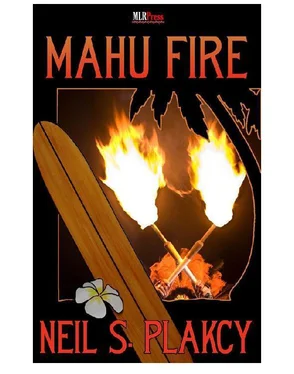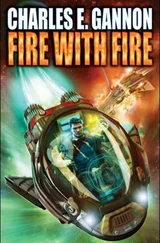Neil Plakcy - Mahu Fire
Здесь есть возможность читать онлайн «Neil Plakcy - Mahu Fire» весь текст электронной книги совершенно бесплатно (целиком полную версию без сокращений). В некоторых случаях можно слушать аудио, скачать через торрент в формате fb2 и присутствует краткое содержание. Жанр: Полицейский детектив, на английском языке. Описание произведения, (предисловие) а так же отзывы посетителей доступны на портале библиотеки ЛибКат.
- Название:Mahu Fire
- Автор:
- Жанр:
- Год:неизвестен
- ISBN:нет данных
- Рейтинг книги:5 / 5. Голосов: 1
-
Избранное:Добавить в избранное
- Отзывы:
-
Ваша оценка:
- 100
- 1
- 2
- 3
- 4
- 5
Mahu Fire: краткое содержание, описание и аннотация
Предлагаем к чтению аннотацию, описание, краткое содержание или предисловие (зависит от того, что написал сам автор книги «Mahu Fire»). Если вы не нашли необходимую информацию о книге — напишите в комментариях, мы постараемся отыскать её.
Mahu Fire — читать онлайн бесплатно полную книгу (весь текст) целиком
Ниже представлен текст книги, разбитый по страницам. Система сохранения места последней прочитанной страницы, позволяет с удобством читать онлайн бесплатно книгу «Mahu Fire», без необходимости каждый раз заново искать на чём Вы остановились. Поставьте закладку, и сможете в любой момент перейти на страницу, на которой закончили чтение.
Интервал:
Закладка:
I had a couple more houses to canvass, but didn’t learn anything more about either shooting-man or chicken. Sometimes it goes like that. I didn’t like to think that this murder would add to my string of unsolved cases, but without a break it probably would.
The next morning, I was adding notes on the evening’s canvass to those I’d already written when Sampson appeared at my desk. “Seen the paper this morning?” he asked, dropping the local section in front of me. It was opened to an article headlined “Makiki Tragedy Continues.”
“Twenty years ago this month, Patricia Mura was brutally slain, her body dumped on the slopes of Diamond Head. Her killer is still at large. Yesterday morning, her father, Hiroshi Mura, was just as brutally murdered, a single bullet fired into his brain at close range.”
“How’d the press get that information?” I asked Sampson. “I haven’t released anything.”
“Read on,” Sampson said.
The article went on to imply that the murders of Mura and his daughter, twenty years apart, were somehow connected. The heart-wrenching story detailed his tragic fall into mental illness, beginning with the death of his wife, continuing with Patty’s drug use and arrests for prostitution.
To make things worse, though, the article’s author, a reporter named Greg Oshiro who was generally critical of the HPD, brought up the rash of unsolved homicides, ending with a generalized indictment of the department for decades of ineptitude.
It was the kind of article that made me angry. Honolulu police officers risked their lives every day to protect and serve with aloha, as our logo promised, and there was a wall right downstairs with dozens of names of officers who had died in the line of duty. I believe that the press should be able to criticize us, especially if we’re not doing our jobs well-but reporters like that were simply out to grab headlines rather than engage in a debate over police procedures.
“The chief’s already been on to me,” Sampson said. “He wants to see some progress in this case. Have you looked up the information on the daughter’s murder?”
I looked at Sampson. “You think it’s connected?”
“I don’t think. That’s your job.”
“I’ll get the file,” I said. He retreated to his office, and I finished my notes on Mura’s murder, then printed them up and stuck them in the case file. I spent most of the rest of the day digging up what little information there was on Patricia Mura’s arrests, her time in juvenile hall, the times she had run away, and her murder.
The crime scene guys had pulled fingerprints off the belt that had been used to bind her hands, though there had been no match at the time. I took the card and went downstairs to the Special Investigations Section and found Thanh Nguyen, a fingerprint tech I knew who worked downstairs in the Records and Identification Division. His division was responsible for serving warrants, firearms registration and permits, handling of evidence, fingerprinting and identification. He was a Vietnamese guy in his early sixties, and word around the building was that he’d been in the South Vietnamese army, escaping on one of the last planes out of Saigon.
“Can you run these through the system for me?” I asked.
He looked at the tenprint card I handed him. “You on a cold case?”
I shrugged. “You see the paper today? This girl was the daughter of my the homeless man shot yesterday in Makiki. The Advertiser dug it up, so I figured I’d rule out any connection.”
Thanh nodded. “Come on. I’ll see what I can do. We must have over 200,000 sets of prints in the system by now. Maybe you’ll get lucky.” He was a short, skinny guy, and I was struck by his general resemblance to Hiroshi Mura. Maybe he could help me bring some measure of peace to Mura’s restless spirit.
The card was old and a little faded, but Thanh sat at the AFIS console and scanned it in. While I watched, the computer marked the minutiae points-the things that differentiate one print from another-and assigned each a weight. Then it went through its database looking for matches.
“What do you know.” He motioned me to look at the console. “See that? You’ve got a match.”
The system brought up a mug shot and arrest record for Edward Kapili Foster. He had been convicted of similar crimes around the same time as Patricia Mura’s murder, and had died at the Halawa Correctional Facility, a medium-security prison, a few years before.
Case cleared. I took the information in to Sampson, and he called it into a source at the paper he knew. “This doesn’t get you off the hook for Mura’s murder, though,” he said.
“I’m on it.” Back at my desk, the phone rang. It was Rory Yang, the sergeant in charge of the holding cells in the basement of the headquarters building. He asked, “Hey, Kimo, you know about that sweep last night in Waikiki?”
“Another one?” Vice had been cracking down on prostitutes and drug peddlers in anticipation of a big Shriners’ convention in a few days. The bad thing was that once they moved all the prostitutes and pushers out of Waikiki, they just moved into District 1.
“One of ‘em says he knows you.”
“Who?”
“Kid we picked up on solicitation. Name of James Wong.”
“James Wong.” I thought for a minute. “Jimmy Ah Wong?”
“Chinese kid about sixteen, blond hair in one of those funny stand-up cuts?”
“That’s him. I’ll come right down.”
My mind was racing ahead. The last time I’d seen Jimmy he was happy, going to the gay teen center in Waikiki and getting accustomed to being gay. But then I realized I had missed him at the teen center for the last few weeks.
I tracked down Rory Yang, a forty-something career sergeant with a round face and an unfortunate taste for malasadas, a kind of Portuguese donuts. He showed me Jimmy’s arrest record. Jimmy had no priors, and a preliminary drug screen had come up clean. Then Rory buzzed me through to the cell block, where I found Jimmy in a skin-tight T-shirt and a pair of torn cutoffs, sitting on a bunk. He was leaning back against the rough concrete wall, and his head was down between his knees. His effusive coxcomb of yellow hair, however, was a dead giveaway.
“Hey, Jimmy.”
His head came up. “They told me I could call someone, but I didn’t know who.” He looked anxious. “I hope it was okay. I’m not gonna get you in trouble, am I?”
“No. What happened?”
He looked away. “They picked me up on Kalakaua Avenue.”
“What were you doing there?”
“What do you think?”
“Does your father know?”
“He doesn’t give a shit.”
I leaned against the cell bars. “You want me to give him a call?”
“He won’t care. He kicked me out.”
“He did? When? Why?”
“About a month ago. I told that DA lady everything, all that stuff I told you, about having sex with Wayne and forging my dad’s name. He hit the roof and threw me out.”
“Where have you been living?”
“Around. I stayed with friends for a while, but then my dad stopped paying my tuition at Honolulu Christian, and since I wasn’t going to school nobody’s parents would let me stay there.”
It was a pattern I’d seen before. Gay teens get tossed out of their homes after they come out, and they end up on the street. “Are you clean?”
“I don’t do drugs, okay? I just do stuff to get some money to eat and all.”
“You want me to get you out of here?”
For the first time I saw something like a smile cross his face. “Can you?”
“I can try. You hang in there. I’ll come back when I know where you stand.”
Jimmy wasn’t the only teenager they’d picked up in the sweep, though he was the only boy. A caseworker from Social Services was already on the ground floor, talking to one of the girls. While I waited, I called Melvin Ah Wong at the pack and ship company he ran.
Читать дальшеИнтервал:
Закладка:
Похожие книги на «Mahu Fire»
Представляем Вашему вниманию похожие книги на «Mahu Fire» списком для выбора. Мы отобрали схожую по названию и смыслу литературу в надежде предоставить читателям больше вариантов отыскать новые, интересные, ещё непрочитанные произведения.
Обсуждение, отзывы о книге «Mahu Fire» и просто собственные мнения читателей. Оставьте ваши комментарии, напишите, что Вы думаете о произведении, его смысле или главных героях. Укажите что конкретно понравилось, а что нет, и почему Вы так считаете.












